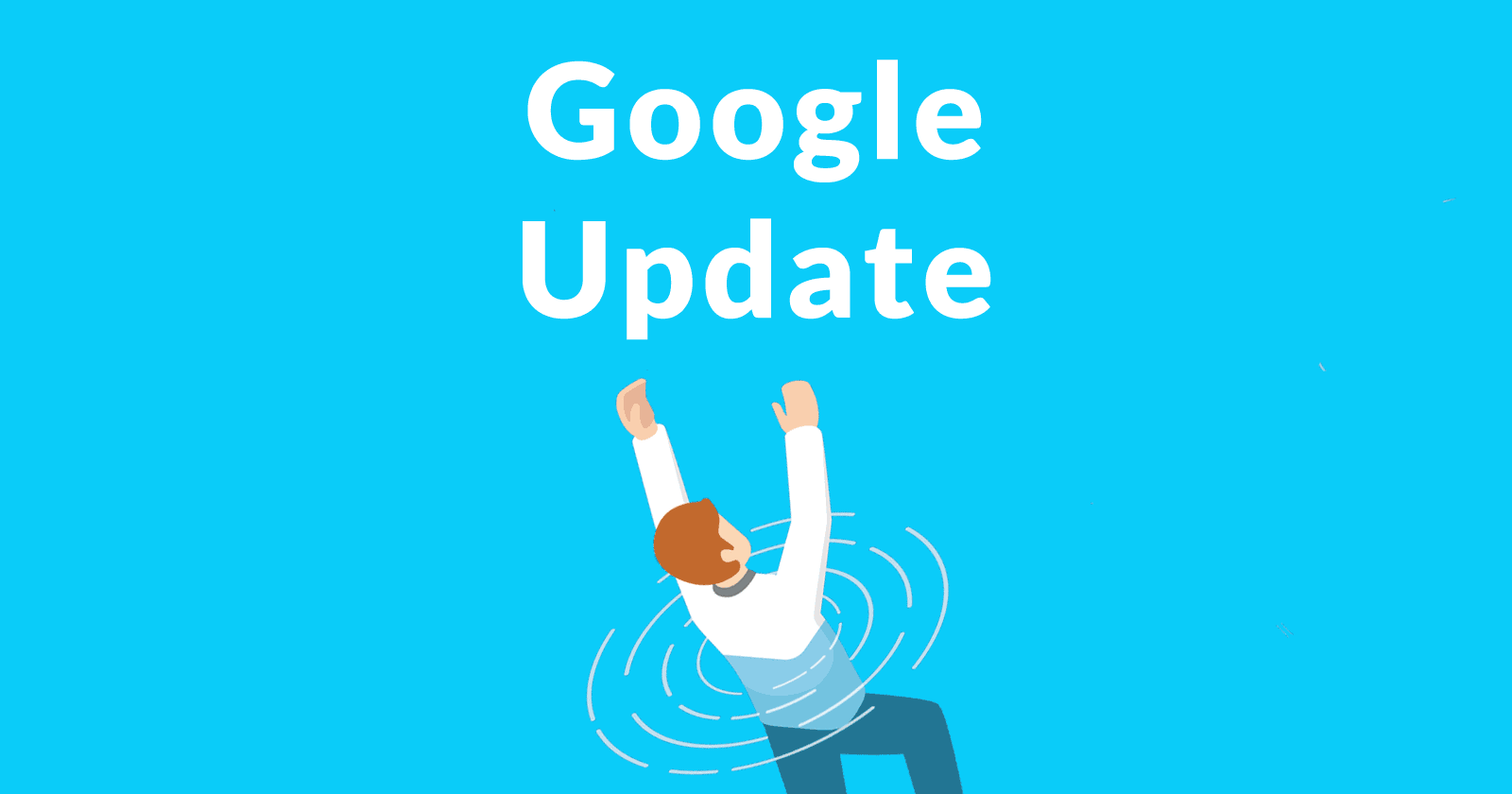Google Update Response Falls Short of Expectations

Google’s SearchLiaison confirmed that some updates happened. But he downplayed their importance. The attempt to trivialize the update was in contrast to the widely felt impact and passionate response to it by publishers. Many asserted that this update was significant and worthy of more guidance.
Google Confirms November 2019 Update… Sort of
The confirmation was in the form of answering the feedback about the update felt last week, beginning approximately November 7th but felt in force on November 8th.
This is what Google SearchLiaison said:
“Some have asked if we had an update to Google Search last week. We did, actually several updates, just as we have several updates in any given week on a regular basis. In this thread, a reminder of when and why we give specific guidance about particular updates….”
Some have asked if we had an update to Google Search last week. We did, actually several updates, just as we have several updates in any given week on a regular basis. In this thread, a reminder of when and why we give specific guidance about particular updates….
— Google SearchLiaison (@searchliaison) November 12, 2019
Publishers Dissatisfied With Lack of Guidance
The response to the update was out of step with the widely felt impact on publishers. Many publishers expressed dissatisfaction with Google’s response.
Agreed. A little guidance on why it’s no longer great would go a long way. Otherwise, I don’t even know where to go from here on writing quality content. 🤷♀️
— Britni Vigil (@PlayPartyPlan) November 13, 2019
Another publisher expressed confusion as to why his content could be considered good for years and overnight have it’s traffic dramatically slashed.
Not sure why our content was considered “great” last week and not this week. We’ve lost 63% of SEO traffic overnight. Years of hard work wiped out in a few hours…
— Peter John Watson (@Scratch_Video) November 12, 2019
A common theme among the casualties of Google’s update was astonishment of having played by the rules and succeeded, only to watch all the success disappear:
It would be great if you undid that change. My traffic is down 30 percent. Which is greatly hurting my business and family this time of year. I work very hard to practice ethical SEO practices. This one hurt.
— Katie Clark (@clarkscondensed) November 12, 2019
Not Just Another Update
Google SearchLiaison’s statement that the update was not out of the ordinary stood in contrast to the extraordinary outcry on Twitter and elsewhere.
Clearly, this update was not like any other update that Google does on any given week. The update was so widespread and keenly felt that it was compared to the devastating 2012 rollout of the Google Penguin algorithm:
Woah, the latest Google algo update is AGGRESSIVE!
Some sites are tanking like it’s 2012 and Google just rolled out the first ever Penguin update.
Is that the impact of BERT or something else – whaddayathink? pic.twitter.com/WWmLW637Ay
— Kevin_Indig (@Kevin_Indig) November 10, 2019
The comparison is not an exaggeration.
I have witnessed and lived through every update that Google has rolled out. This update compares closely in publisher impact with Google’s most disruptive updates, the Florida Update in 2003 and the Penguin update from 2012.
The Florida update caused major disruptions in the publishing world. In fact, I remember that Danny Sullivan himself sent me a private message on WebmasterWorld asking if I had any information to share. The impact of this update feels as if it’s on a similar scale.
Update Introduced More Spam?
A common complaint is that the update allowed more spam into the search results. There is anecdotal evidence that this update affected spam sites in a positive way for some sites. Ordinarily in an update it’s mostly misery being reported. That’s not the case with the November 2019 update.
Anecdotal evidence from reading the link spam related Facebook groups seems to indicate generally upbeat reports.
Update Introduced Irrelevant Results
Another common complaint was that some search results were irrelevant. One person tweeted a screenshot of a search for “meatball recipe” that resulted in recipe for gluten free pumpkin cupcakes.
I Googled “Meatball Recipe” and a Pumpkin Cupcake recipe came up. Are there kinks still being worked out? I am well-versed with this particular search for my business and it’s never been so off. This is just one example of bizarre behavior that we’ve been seeing since Friday. pic.twitter.com/sPbCbEY105
— The Cozy Cook (@TheCozyCook) November 13, 2019
Is November Update Bert Part 2?
According to Google SearchLiaison’s short statement, the November update was a number of different changes:
“We did, actually several updates…”
It may be a reasonable assumption that one of those changes was an expansion in the use of BERT. I gave an informal look at a few of the sites that had experienced drops of 30% or more and I noticed that certain anomalies in how the pages used keywords. Maybe that had something to do with it, maybe not. It was odd however how this anomaly was common across the sites I took a quick look at.
Speculation About Impact of BERT
UK Search marketing and algorithm expert Dawn Anderson (@dawnieando) had some interesting “guesses” about how BERT might impact the search results.
“Only guessing but I suspect it is now much more easy to OVER-optimise since BERT, because it’s designed to actually prevent keyword-ese language / negate the need for this unnatural language in favour of more natural human language. Only thinking off the top of my head though.”
I was startled to read that because it was similar to preliminary observations about what might be happening to some of the recipe and travel bloggers that were impacted by this update.
Boston-based search marketing expert Dave Matson (@davematson) tweeted in response:
“Interesting. Yes, if Bert is better understanding natural language and context, presumably it also means noting “unnatural” language, keyword stuffing etc.”
Interesting. Yes, if Bert is better understanding natural language and context, presumably it also means noting “unnatural” language, keyword stuffing etc.
— dave matson (@davematson) November 11, 2019
I tend to agree that this update may have at least some component that is related to relevance. On the occasions when Google has discussed their updates, the changes have almost always been related to relevance. Such is the case with BERT, which is also about relevance.
There has never been an E-A-T update and there is no such thing as an E-A-T algorithm.
BERT itself is about relevance. That’s why if one is going to make a guess about the November 2019 Google update, there may be a good chance that relevance may be a part of it (though not the entire update).
Google spent the entire weekend ignoring publishers, as if nothing happened. When Google finally issued a statement it fell far short of expectations. Publishers have expressed dissatisfaction with Google’s response so far.
AI
Exploring the Evolution of Language Translation: A Comparative Analysis of AI Chatbots and Google Translate

According to an article on PCMag, while Google Translate makes translating sentences into over 100 languages easy, regular users acknowledge that there’s still room for improvement.
In theory, large language models (LLMs) such as ChatGPT are expected to bring about a new era in language translation. These models consume vast amounts of text-based training data and real-time feedback from users worldwide, enabling them to quickly learn to generate coherent, human-like sentences in a wide range of languages.
However, despite the anticipation that ChatGPT would revolutionize translation, previous experiences have shown that such expectations are often inaccurate, posing challenges for translation accuracy. To put these claims to the test, PCMag conducted a blind test, asking fluent speakers of eight non-English languages to evaluate the translation results from various AI services.
The test compared ChatGPT (both the free and paid versions) to Google Translate, as well as to other competing chatbots such as Microsoft Copilot and Google Gemini. The evaluation involved comparing the translation quality for two test paragraphs across different languages, including Polish, French, Korean, Spanish, Arabic, Tagalog, and Amharic.
In the first test conducted in June 2023, participants consistently favored AI chatbots over Google Translate. ChatGPT, Google Bard (now Gemini), and Microsoft Bing outperformed Google Translate, with ChatGPT receiving the highest praise. ChatGPT demonstrated superior performance in converting colloquialisms, while Google Translate often provided literal translations that lacked cultural nuance.
For instance, ChatGPT accurately translated colloquial expressions like “blow off steam,” whereas Google Translate produced more literal translations that failed to resonate across cultures. Participants appreciated ChatGPT’s ability to maintain consistent levels of formality and its consideration of gender options in translations.
The success of AI chatbots like ChatGPT can be attributed to reinforcement learning with human feedback (RLHF), which allows these models to learn from human preferences and produce culturally appropriate translations, particularly for non-native speakers. However, it’s essential to note that while AI chatbots outperformed Google Translate, they still had limitations and occasional inaccuracies.
In a subsequent test, PCMag evaluated different versions of ChatGPT, including the free and paid versions, as well as language-specific AI agents from OpenAI’s GPTStore. The paid version of ChatGPT, known as ChatGPT Plus, consistently delivered the best translations across various languages. However, Google Translate also showed improvement, performing surprisingly well compared to previous tests.
Overall, while ChatGPT Plus emerged as the preferred choice for translation, Google Translate demonstrated notable improvement, challenging the notion that AI chatbots are always superior to traditional translation tools.
Source: https://www.pcmag.com/articles/google-translate-vs-chatgpt-which-is-the-best-language-translator
Google Implements Stricter Guidelines for Mass Email Senders to Gmail Users

Beginning in April, Gmail senders bombarding users with unwanted mass emails will encounter a surge in message rejections unless they comply with the freshly minted Gmail email sender protocols, Google cautions.
Fresh Guidelines for Dispatching Mass Emails to Gmail Inboxes In an elucidative piece featured on Forbes, it was highlighted that novel regulations are being ushered in to shield Gmail users from the deluge of unsolicited mass emails. Initially, there were reports surfacing about certain marketers receiving error notifications pertaining to messages dispatched to Gmail accounts. Nonetheless, a Google representative clarified that these specific errors, denoted as 550-5.7.56, weren’t novel but rather stemmed from existing authentication prerequisites.
Moreover, Google has verified that commencing from April, they will initiate “the rejection of a portion of non-compliant email traffic, progressively escalating the rejection rate over time.” Google elaborates that, for instance, if 75% of the traffic adheres to the new email sender authentication criteria, then a portion of the remaining non-conforming 25% will face rejection. The exact proportion remains undisclosed. Google does assert that the implementation of the new regulations will be executed in a “step-by-step fashion.”
This cautious and methodical strategy seems to have already kicked off, with transient errors affecting a “fraction of their non-compliant email traffic” coming into play this month. Additionally, Google stipulates that bulk senders will be granted until June 1 to integrate “one-click unsubscribe” in all commercial or promotional correspondence.
Exclusively Personal Gmail Accounts Subject to Rejection These alterations exclusively affect bulk emails dispatched to personal Gmail accounts. Entities sending out mass emails, specifically those transmitting a minimum of 5,000 messages daily to Gmail accounts, will be mandated to authenticate outgoing emails and “refrain from dispatching unsolicited emails.” The 5,000 message threshold is tabulated based on emails transmitted from the same principal domain, irrespective of the employment of subdomains. Once the threshold is met, the domain is categorized as a permanent bulk sender.
These guidelines do not extend to communications directed at Google Workspace accounts, although all senders, including those utilizing Google Workspace, are required to adhere to the updated criteria.
Augmented Security and Enhanced Oversight for Gmail Users A Google spokesperson emphasized that these requisites are being rolled out to “fortify sender-side security and augment user control over inbox contents even further.” For the recipient, this translates to heightened trust in the authenticity of the email sender, thus mitigating the risk of falling prey to phishing attempts, a tactic frequently exploited by malevolent entities capitalizing on authentication vulnerabilities. “If anything,” the spokesperson concludes, “meeting these stipulations should facilitate senders in reaching their intended recipients more efficiently, with reduced risks of spoofing and hijacking by malicious actors.”
Google’s Next-Gen AI Chatbot, Gemini, Faces Delays: What to Expect When It Finally Launches

In an unexpected turn of events, Google has chosen to postpone the much-anticipated debut of its revolutionary generative AI model, Gemini. Initially poised to make waves this week, the unveiling has now been rescheduled for early next year, specifically in January.
Gemini is set to redefine the landscape of conversational AI, representing Google’s most potent endeavor in this domain to date. Positioned as a multimodal AI chatbot, Gemini boasts the capability to process diverse data types. This includes a unique proficiency in comprehending and generating text, images, and various content formats, even going so far as to create an entire website based on a combination of sketches and written descriptions.
Originally, Google had planned an elaborate series of launch events spanning California, New York, and Washington. Regrettably, these events have been canceled due to concerns about Gemini’s responsiveness to non-English prompts. According to anonymous sources cited by The Information, Google’s Chief Executive, Sundar Pichai, personally decided to postpone the launch, acknowledging the importance of global support as a key feature of Gemini’s capabilities.
Gemini is expected to surpass the renowned ChatGPT, powered by OpenAI’s GPT-4 model, and preliminary private tests have shown promising results. Fueled by significantly enhanced computing power, Gemini has outperformed GPT-4, particularly in FLOPS (Floating Point Operations Per Second), owing to its access to a multitude of high-end AI accelerators through the Google Cloud platform.
SemiAnalysis, a research firm affiliated with Substack Inc., expressed in an August blog post that Gemini appears poised to “blow OpenAI’s model out of the water.” The extensive compute power at Google’s disposal has evidently contributed to Gemini’s superior performance.
Google’s Vice President and Manager of Bard and Google Assistant, Sissie Hsiao, offered insights into Gemini’s capabilities, citing examples like generating novel images in response to specific requests, such as illustrating the steps to ice a three-layer cake.
While Google’s current generative AI offering, Bard, has showcased noteworthy accomplishments, it has struggled to achieve the same level of consumer awareness as ChatGPT. Gemini, with its unparalleled capabilities, is expected to be a game-changer, demonstrating impressive multimodal functionalities never seen before.
During the initial announcement at Google’s I/O developer conference in May, the company emphasized Gemini’s multimodal prowess and its developer-friendly nature. An application programming interface (API) is under development, allowing developers to seamlessly integrate Gemini into third-party applications.
As the world awaits the delayed unveiling of Gemini, the stakes are high, with Google aiming to revolutionize the AI landscape and solidify its position as a leader in generative artificial intelligence. The postponed launch only adds to the anticipation surrounding Gemini’s eventual debut in the coming year.
-

 MARKETING7 days ago
MARKETING7 days agoThe key to correcting the C-suite trust deficit
-

 MARKETING6 days ago
MARKETING6 days agoA Recap of Everything Marketers & Advertisers Need to Know
-

 MARKETING4 days ago
MARKETING4 days agoHow To Protect Your People and Brand
-

 PPC4 days ago
PPC4 days agoHow the TikTok Algorithm Works in 2024 (+9 Ways to Go Viral)
-

 SEARCHENGINES5 days ago
SEARCHENGINES5 days agoGoogle Started Enforcing The Site Reputation Abuse Policy
-

 SEO7 days ago
SEO7 days ago128 Top SEO Tools That Are 100% Free
-

 SEO5 days ago
SEO5 days agoBlog Post Checklist: Check All Prior to Hitting “Publish”
-

 SEO3 days ago
SEO3 days agoHow to Use Keywords for SEO: The Complete Beginner’s Guide













